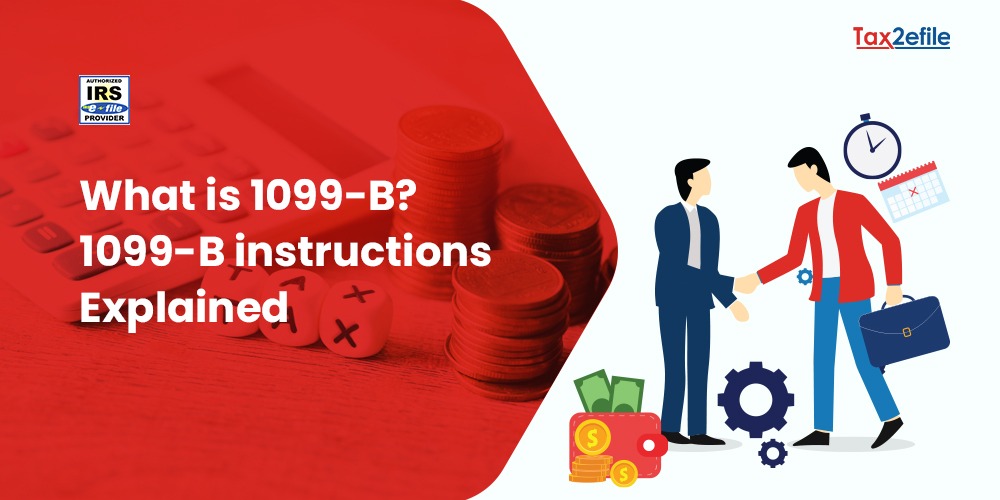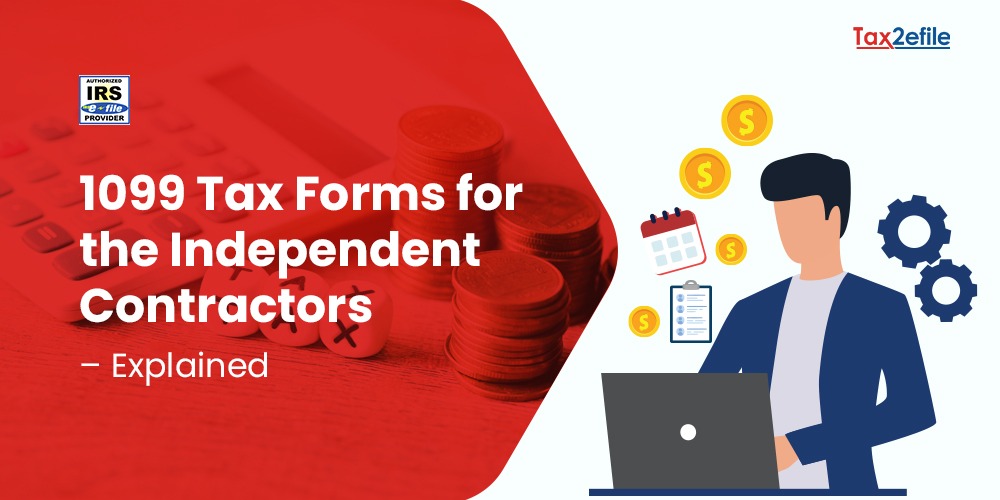- October 22, 2024

Information return filing is a very essential component of the year-end planning. The most common type of information return form is the 1099 tax Form. These forms come with a special set of rules; when they are not filled out properly, they can subject the business to large penalties and potential financial and reporting issues. The 1099 Forms are generally given to the contractors working for a company to report the other types of income for the recipients.
Table of Contents
How to Correct Errors on Filed 1099 Information Returns
If the taxpayer has filed an Information Return with the IRS and later discovers that they made an error on it, they must correct the Form as soon as possible, furnish statements to the recipients showing all the corrections, and file the correction with the IRS as soon as possible.
If the returns have errors, the taxpayer should correct the records and file the corrections to the 1099 returns as soon as possible. They should only submit the original 1099 forms that were included in the file as a correction. They should submit these forms under a separate payee and record the same as the original return.
Guidelines for Filing 1099 Corrections to Avoid IRS Penalties
According to the following guidelines, the taxpayer should file the corrections to the 1099 returns as soon as possible to avoid penalties from the IRS.
- The taxpayer should get the corrections to their 1099 Forms as soon as possible. Corrections filed after August 1st may be subjected to a maximum penalty of $130 per return. The IRS considered the correction that had been filed in a timely manner as a factor in calculating the penalty amount.
- The taxpayers should submit the corrections only for the returns with errors, and they need to submit only part of the tax file.
- The tax filers must adhere to the electronic filing requirements, which might apply to both the original and corrected returns.
- If the taxpayer has more than 250 corrections, they should file the corrected returns electronically.
- If the taxpayer cannot file the corrections electronically, in order to avoid penalties, the taxpayer should submit a request for a waiver before filing the tax returns.
- If a waiver is approved for the original documents, it should cover any corrections for the same type of return.
- It is mandatory to furnish the corrected forms to recipients as soon as possible.

Some of the Common 1099 Filing Errors
Some of the common errors in filing the 1099 tax form are as follows
Not filing the Tax Form When the Form is Needed
The biggest mistake is that taxpayers should pay more attention to filing an information return when it is required. A number of situations require Form 1099 to be filed, and it is important to file the Form within the deadline to avoid penalties.
Penalty for not Filing the Form by the Due Date
The IRS requires taxpayers to file all information returns by 31 January of the tax year. The IRS Form 1099-NEC and the W-2 Forms are due to the IRS by January 31st of the tax year, regardless of whether the taxpayer is filing the returns electronically or through paper filing.
The rest of the 1099 tax Forms are due to the IRS by February 28 for paper filing, and the deadline is March 31st if filing electronically. The best way to avoid issues with the 1099 tax filing is to start preparing the tax returns early and have all the relevant information ready to file these tax forms.
Filing the Tax Forms
In the case of filing the paper returns, the taxpayer should be sure to use the correct year of the tax Form. Taxpayers should ensure to fill out the correct 1099 Form for specific reasons, such as 1099-MISC, 1099-INT, etc.
Using the Wrong Box to File the Returns on the Form
Taxpayers should make sure that when they are preparing the tax Forms, even if they are filling in the right form, they use the appropriate box on the Form. For example, on the IRS Form 1099-MISC, there are several boxes on which the IRS levies taxes in different ways. The information on rent in Box 1 may be shown on a 1040 schedule E. Other income payments can be shown on 1040 Schedule C or Form 1040. As we enter the information in different boxes, the IRS will treat the different types of income accordingly. The different types of income can have different tax rates and rules, on the basis of the Form and the box the information is entered.
Penalty for Not Reporting the Taxpayer ID Number
Taxpayers should be very sure that they are receiving and updating the W-9 Form for their vendors so that they can have all the appropriate information to file their returns at the end of the year. They should also have a check on using the appropriate name for the TIN they receive.
Not Filling the Form with Correct Details
Taxpayers must double-check their tax Forms to ensure that they are using the correct amount for the correct year and for the appropriate vendor. They should also use the correct vendor’s name and address on the tax Form.
Filing a Paper Return When it is Required to File Electronically
The IRS has proposed new e-filing requirements that will take effect on January 1, 2024, and might affect many taxpayers. These new regulations reduce the threshold for the number of returns that must be filed electronically. With effect from January 1, 2024, the threshold is reduced from 250 to 10 and requires the filings to be aggregated. E-filing can take up to 45 days, so it is important to apply early in order to e-file by the tax-paying deadline.
1099 Penalties for Mistakes in Electronic Filing
The IRS imposes substantial penalties for Form 1099, including penalties for late filing, failure to file the returns, failure to file Form 1099 electronically, and failure to provide the recipient with copies for the taxpayers. When it comes to filing the 1099 Forms, it is important to file them accurately and timely.
1099 Late Filing Penalty
If the taxpayer fails to file 1099 by the due date, the taxpayer may be subject to a late filing penalty. The penalty will apply if the taxpayer fails to file timely, does not include all the required information, or provides incorrect information. The penalty would not be applicable if the taxpayer were supposed to file electronically but filed on paper and reported an incorrect TIN. The 1099 penalty will increase with time, and the penalty details are as follows.
- The fine per the 1099 Form is $60 if the taxpayer incorrectly files within 30 days of the due date.
- $120 is the fine per 1099 Form if the taxpayer files more than 30 days after the due date but by 1st August.
- $310 per 1099 if the taxpayer files the returns after August 1. The maximum penalty per year is $3,783,000.
Penalty for Failing to Furnish Correct Payee Statements
The taxpayers will be required to provide payee statements by the due date. The different tax Forms will have different due dates. The due date for the payee statement for Form 1099-MISC is January 31. If the taxpayer fails to provide correct statements to the payees by the due date, they will be subject to a penalty. The amount of the penalty is based on when the taxpayer furnishes the correct payee statement.
Failure to File Form 1099 Electronically
Suppose the taxpayer was required to file the returns electronically, and they have failed to do so without a reasonable cause. In that case, they may be subjected to a penalty of up to $280 per return for failure to file electronically. Taxpayers can, however, file up to 99 returns on paper, and they will not be subjected to a penalty for failure to file electronically.
Fraudulent Filing of Returns
If a taxpayer willfully files a fraudulent 1099 for payment they claim to have made to another person, that person will be able to sue them for damages. In such cases, they have to pay $5000 or more for the penalty.
Avoid Costly Tax Mistakes: Expert 1099 Corrections with Tax2efile
IRS tax filing and 1099 corrections are costly endeavors. Even a single lethargic move can avail costly fines for the taxpayers. Tax2efile can help file returns without any corrections electronically on all the 1099 tax Forms. They will be able to correct all the errors in the tax forms before filing them. Even on forms that are returned by the IRS, they will be able to make the corrections and file them back successfully within the due date. This helps taxpayers save a lot of time and money and refrain from paying penalties.


